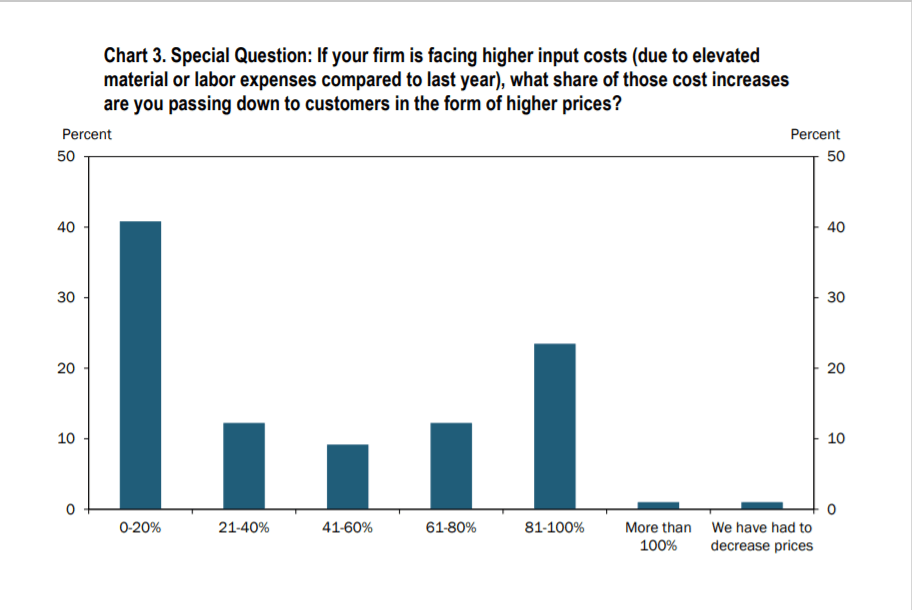Every manufacturing firm responding to the Kansas City Fed’s September survey reported paying higher prices for raw materials.
The Kansas City Fed’s manufacturing survey indicated rising inflationary pressures even as growth slowed, data released Thursday showed.
One hundred percent of firms said they were paying more for materials than one year ago, twice the average for the series going back to 2001 and up from 96 percent in August. This is the second time ever that the series has hit 100 percent and the other time was in July of this year.
Seventy-seven percent of firms said prices for materials had gone up in the last month, a one percentage point broadening from the prior month.
Eighty-three percent of manufacturers said they were charging higher prices than a year ago, up from 79 percent in August. Compared with August, forty-one percent said they were charging more, a narrowing of inflationary pressures from July’s 59 percent. On average since 2001, only 29 percent of firms said their prices were higher than a year ago and just 6.6 percent said they were higher than a month earlier.
Expectations for inflation also broadened. In September, fifty-eight percent of firms said they expected to charge more six months from now and 79 percent said they expected to pay more for materials. The long-term averages are 23 percent and 43 percent respectively.
In this month’s special questions, the Kansas City Fed asked manufacturers about their expected ability to pass on higher costs.
- 41% of firms indicated the ability to pass through 0-20% of cost increases to their customer.
- Over a third of firms reported passing through 21-80% of price increases.
- Nearly a quarter of firms indicated passing through 81-100% of price increases.
The headline index of economic activity unexpectedly fell to a reading of 22 in September. Economists had forecast the index to remain at least month’s reading of 29. The so-called “composite” index is an average of the production, new orders, employment, supplier delivery time, and raw materials inventory indexes.
“Factory growth continued to be driven by a faster increase in durable goods, in particular primary metals, computer and electronic products, and transportation equipment, while nondurable goods manufacturing grew more modestly,” said Chad Wilkerson, Branch Executive of the Kansas City Fed’s Oklahoma City Branch office. “Month-over-month indexes remained positive in September, indicating expansion, but the pace of growth moderated slightly.”

Inventories of materials recovered from pandemic ebbs to the highest level since late 2017 but finished goods inventories were only marginally positive.
Supplier delivery time rose to a fresh record high as supply-chain disruptions continue to weigh on manufacturers.
The survey covers manufacturing businesses in the 10th District of the Federal Reserve, which includes Colorado, Kansas, Nebraska, Oklahoma, Wyoming, and portions of western Missouri and northern New Mexico.


COMMENTS
Please let us know if you're having issues with commenting.